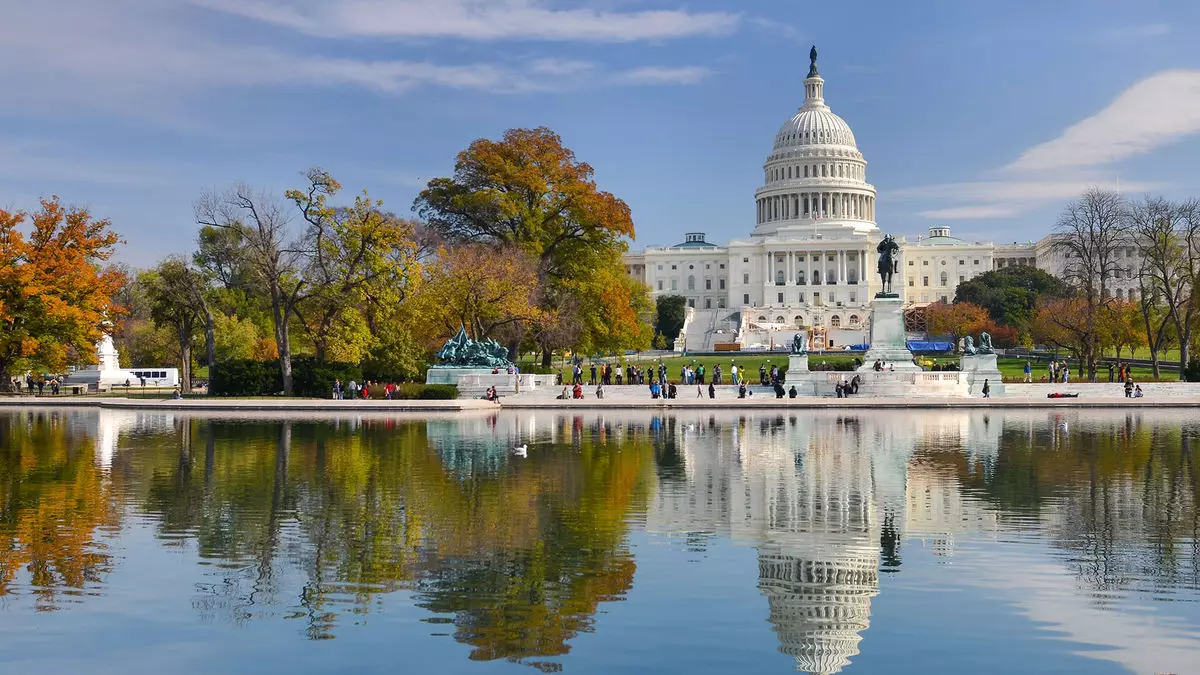As Donald Trump prepares for a possible return to the White House, the travel industry stands at a crossroads that may dramatically reshape its landscape. The implications of his leadership on domestic and international travel policies are already invoking both apprehension and optimism among industry analysts and stakeholders. With changes anticipated in Congress, the travel sector must brace itself for a potentially transformative period—a time when established norms and expectations could give way to uncharted territory.
Political analysts, including Gary Leff from the View From the Wing blog, suggest that Trump’s re-emergence could represent a significant departure from previous Republican policies. Unlike his first term, where mainstream Republican values dominated his administration, shifts in party dynamics signal a departure from conventional pro-business ideologies that have historically favored the travel sector. Leff emphasizes that Trump’s administration might embrace a harsher stance on border control and airport arrivals, posing challenges for inbound tourism and international travelers.
The current administration has prioritized efforts to reduce visa backlogs, but there’s uncertainty whether these initiatives will continue under a new regime. With the Biden administration aiming for one million additional visa appointments by 2025, a reversal or deprioritization of such measures could exacerbate issues surrounding inbound tourism, inhibiting the recovery of travel numbers to pre-pandemic figures.
Compounding concerns for the travel sector are growing geopolitical tensions, specifically with China. As trade conflicts persist, travel analysts caution that these issues may stall the anticipated recovery in travel between the two countries. While the State Department’s commitment to expanding visa appointments was initially seen as a step toward increasing tourism, analysts like Leff warn that renewed “tough talk” in foreign affairs could undermine these efforts.
These challenges are exacerbated by a tumultuous global context, raising questions about the feasibility of encouraging visa-free travel and reduced diplomatic tensions—critical factors for fostering a thriving international tourism environment.
Despite the concerns regarding inbound tourism, the airline sector may find itself on the cusp of beneficial changes if Trump’s administration leads to a more favorable regulatory landscape. In stark contrast to the previous administration’s antitrust stance—evidenced by the challenges against the JetBlue-Spirit merger—Trump’s return could usher in a more accommodating environment for mergers and acquisitions in the airline industry.
Analysts like Lucinda Guthrie suggest that the potential for a “breakout year for M&A” could emerge under a Trump administration, stimulating competition and consolidation within the airline sector. Changes in leadership at the Departments of Transportation (DOT) and Justice may alleviate scrutiny that airlines have faced in recent years, particularly concerning loyalty programs and anticompetitive practices.
Leff points out that precedents established in past rulings may lead to renewed proposals for partnerships between airlines, hinting that with administrative shifts will come opportunities for reshaping business strategies that were previously deemed illegal. This renewed outlook could provide significant advantages for the airline sector, fostering an environment where increased competition enhances affordability and accessibility in air travel.
While airlines may experience potential gains from a shift in regulatory frameworks, consumer protections could be at risk with a new administration. Regulatory focus on passenger rights issues, such as compensation for cancellations and transparency regarding ancillary fees, might recede under Trump. Recent initiatives led by the Biden administration, including fines imposed on airlines for violations of consumer protection standards, may reflect a more lenient approach to regulatory enforcement.
Moreover, proposed regulations aimed at increasing transparency in ancillary fees may see continued legal challenges as airlines push back against the constraints placed on their pricing models. The outcome of these legal disputes and new regulatory measures will significantly influence both consumer protections and the overall competitiveness of the air travel market.
As the political landscape evolves, its ramifications on the travel sector are bound to be profound. Whether viewed through the lens of international travel, airline mergers, or consumer rights, the potential consequences of a Trump administration raise important questions about the values that will shape industry policies.
Although uncertainty looms large, the travel sector must remain agile and prepare for new rules of engagement. It is essential for industry stakeholders to advocate for balanced policies that respect consumer rights while simultaneously fostering growth and recovery for a sector that has faced unprecedented challenges. Ultimately, how the travel industry navigates these upcoming changes will determine its resilience and adaptability in an ever-changing global landscape.


Leave a Reply